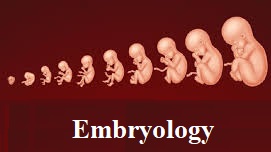Management > International Business Management > Introduction to International Business > Need of Study of International Business List of Sub-Topics: In today’s world, businesses, economies, and even cultures are deeply interconnected due to globalization. Companies of all sizes—from small startups to large multinational corporations—now have opportunities to reach global markets, partner with international organizations, and […]
Category: Facts
Bacteriology

Science > Biology > Branches of Biology > Zoology > Bacteriology Bacteriology is a branch of microbiology that focuses on the study of bacteria, which are single-celled microorganisms that belong to the domain Bacteria. Bacteria are diverse and ubiquitous, inhabiting virtually every environment on Earth, including soil, water, air, and living organisms. Bacteriology encompasses various […]

Science > Biology > Branches of Biology > Zoology > VIROLOGY Virology is the branch of microbiology that focuses on the study of viruses and viral diseases. Viruses are infectious agents that consist of genetic material (either DNA or RNA) enclosed in a protein coat called a capsid. They lack cellular structure and can only […]
Microbiology

Science > Biology > Branches of Biology > Zoology > Microbiology Microbiology is the scientific study of microorganisms, which are microscopic organisms too small to be seen with the naked eye. These organisms include bacteria, viruses, fungi, algae, and protozoa. Microbiologists investigate various aspects of these microorganisms, including their structure, physiology, genetics, ecology, and interactions […]
Embryology

Science > Biology > Branches of Biology > Zoology > Embryology Embryology is a branch of biology that focuses on the study of embryos and their development from fertilization to the point of birth or hatching. It encompasses the processes by which a single fertilized egg (zygote) develops into a multicellular organism with specialized tissues […]
Developmental Biology

Science > Biology > Branches of Biology > Zoology > Developmental Biology Developmental biology is a scientific discipline that focuses on understanding the processes by which organisms grow and develop from a single cell into complex multicellular structures. It explores the intricate series of events that occur from fertilization through adulthood, encompassing the formation of […]
Science > Biology > Introduction to Biology > Use of Biology in Criminal Investigation Biology plays a crucial role in criminal investigation by providing forensic scientists and law enforcement agencies with valuable tools and techniques to analyze biological evidence, identify suspects, and solve crimes. Biology is a branch of science which studies living beings that […]
Biology and Medical Science

Science > Biology > Introduction to Biology > Biology and Medical Science Biology and medical science are closely intertwined disciplines that share fundamental principles and methodologies but focus on different aspects of living organisms and their interactions with the environment. List of Sub-Topics: Biology and medical science are closely intertwined disciplines that share fundamental principles […]
Conservation Biology

Science > Biology > Branches of Biology > Zoology > Conservation Biology Conservation biology is a multidisciplinary scientific discipline that focuses on the study and preservation of biodiversity and ecosystems. It aims to understand the factors that threaten species, populations, and ecosystems, and develop strategies to mitigate these threats and ensure their long-term survival. List […]
Applied Zoology

Science > Biology > Branches of Biology > Zoology > Applied Zoology Applied zoology refers to the practical application of principles and knowledge from the field of zoology to address real-world problems and challenges. It involves the utilization of scientific research and findings about animals to benefit human society, the environment, and other organisms. List […]